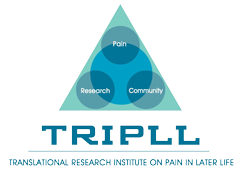Abstract: This study compares the outcomes, from pretreatment to 1-year follow-up, of an outpatient, CBT-based pain self-management program (PSM) that included exercises, pain education, and pain coping strategies, with a control condition (exercise-attention control, EAC) that included exercises and a control for the attention of the treatment team. We previously reported short-term results (to 1-month follow-up) from the same study. This new paper considers the important issue of maintenance of treatment-related gains. The participants (n = 141) were a heterogeneous sample of ambulant, community-dwelling older adult patients with chronic pain (mean age: 73.90 [6.5] years [range: 65-87 years]). The long-term results indicate the pain self-management program group achieved and maintained significantly better results than the exercise-attention control group on the primary outcome, pain-related disability, as well as on usual pain, pain distress, depression, and fear-avoidance beliefs. The mean effect size for these gains by the pain self-management program group over the exercise-attention control group was 0.37 (range: 0.29-0.45), which is in the small effect size range. While statistically and clinically meaningful, these findings do indicate some weakening in effects over time but not to a significant degree. The study has implications for the provision of pain management interventions for community-dwelling older adults with chronic pain.
Reference: Long-term outcomes from training in self-management of chronic pain in an elderly population: a randomized controlled trial. Nicholas, Michael K.; Asghari, Ali; Blyth, Fiona M.; Wood, Bradley M.; Murray, Robin; McCabe, Rebecca; Brnabic, Alan; Beeston, Lee; Corbett, Mandy; Sherrington, Catherine; Overton, Sarah Pain. 158(1):86-95, January 2017
